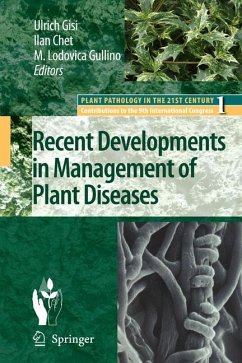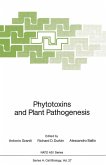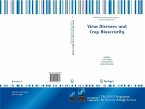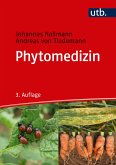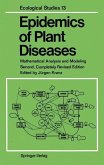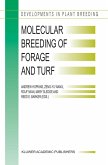This book is a collection of invited lectures given at the 9th International Congress of Plant Pathology (ICPP 2008), held in Torino, August 24-29, 2008 and is part of a series of volumes on Plant Pathology in the 21st Century. It focuses on new developments of disease management and provides an updated overview of the state of the art given by world experts in the different fields of disease management. The different chapters deal with basic aspects of disease management, mechanisms of action of biological control agents, innovation in fungicide application, exploitation of natural compounds and resistance strategies. Moreover, the management of soil-borne diseases and disease management in organic farming are covered.
Dieser Download kann aus rechtlichen Gründen nur mit Rechnungsadresse in A, B, BG, CY, CZ, D, DK, EW, E, FIN, F, GR, HR, H, IRL, I, LT, L, LR, M, NL, PL, P, R, S, SLO, SK ausgeliefert werden.
"This publication is a collection of lectures given at the 9o International Congress of Plant Pathology (ICPP 2008), held in Torino (Italy) 24 - 29 August, 2008 and is a part of a series of volumes on Plant Pathology in the twenty first Century. ... The bibliographical references are detailed at the end of each chapter. ... This book is recommended for researchers who need to extend or update the knowledge in management of plant diseases and the regulatory aspects." (Pascual Franzone, Integrated Pest Management Bulletin, December, 2010)
"The first and largest volume, containing 24 papers, deals with Recent Developments in Management of Plant Disease. ... They bring together a summary of work across the whole field of plant pathology ... . They thus enable specialists to see their specialism as part of an integrated whole, and for students and those at the start of their careers they provide an invaluable summary of what is going on, who the keyplayers are and where the knowledge lacunae lie." (David Ingram, Food Security, Vol. 3, 2011)

